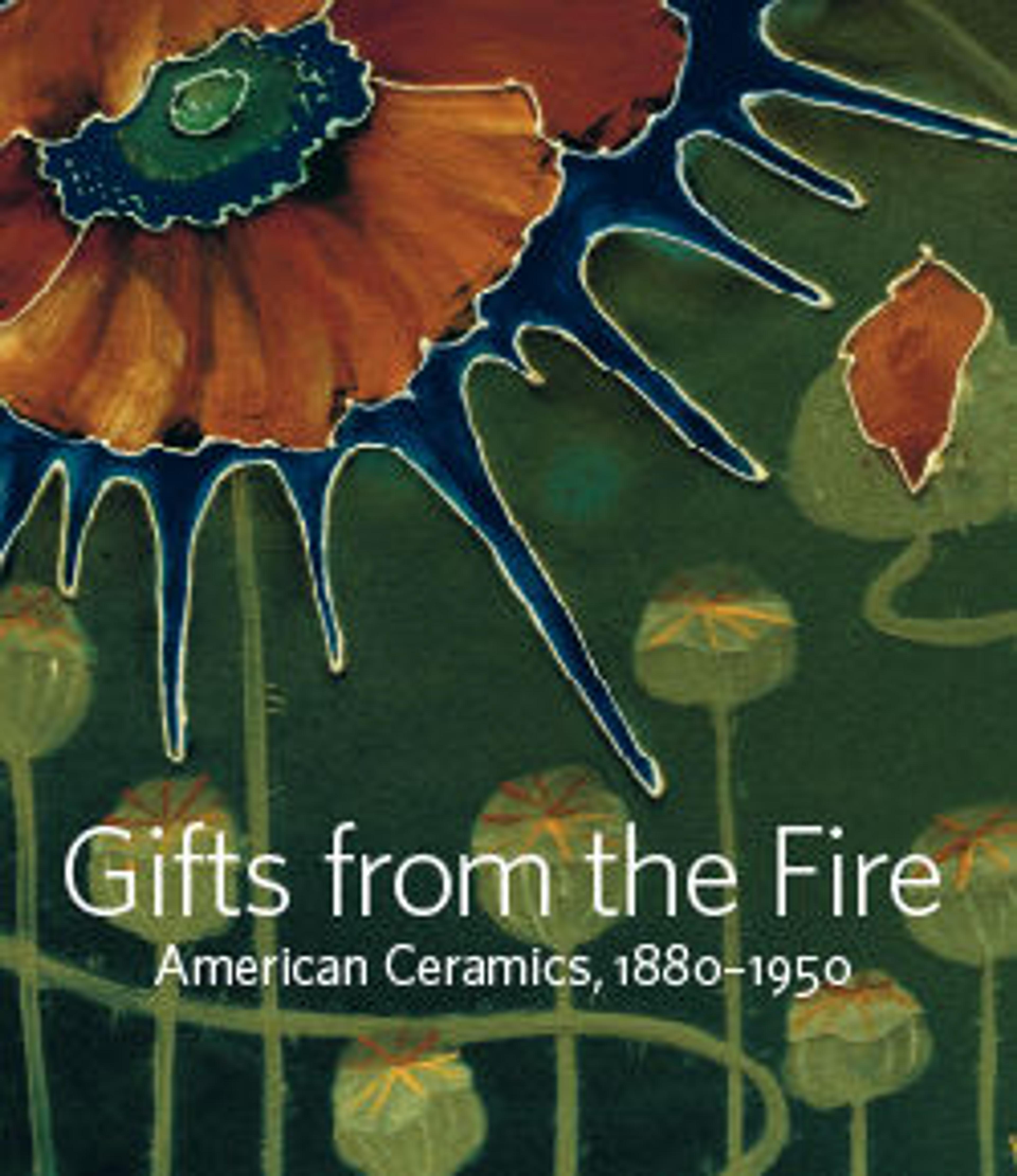Teapot
Adelaide Alsop Robineau was a consummate craftsman and a brilliant designer, who, working on her own, tackled the challenging medium of porcelain in an era when the medium was the domain of large-scale commercial factories. Like many talented women of her era, she began her career as a china painter and teacher, and with her husband, Samuel Robineau, founded the extraordinarily influential periodical Keramic Studio (later Design). She was a pioneer in the field of ceramics, and challenged traditional gender roles in her trail-blazing career, throwing the clay herself, decorating, and glazing her vessels. Her artistic porcelains are today acknowledged to surpass the work of any other American studio potter.
Relatively late in Robineau’s career, she joined the faculty of Syracuse University where she taught students. This teapot is one of the few examples that can be identified with one of her students at Syracuse. The decoration in a bright, bold palette relates to some of Robineau’s students work that was published in 1922 in Keramic Studio. The excised monogram of the unidentified decorator mimics the way Robineau signed her work.
Relatively late in Robineau’s career, she joined the faculty of Syracuse University where she taught students. This teapot is one of the few examples that can be identified with one of her students at Syracuse. The decoration in a bright, bold palette relates to some of Robineau’s students work that was published in 1922 in Keramic Studio. The excised monogram of the unidentified decorator mimics the way Robineau signed her work.
Artwork Details
- Title: Teapot
- Maker: Student of Adelaide Alsop Robineau (American, Middletown, Connecticut, 1865–1929 Syracuse, New York)
- Date: ca. 1922
- Culture: American
- Medium: Earthenware
- Dimensions: H. 5 3/4 in.
- Credit Line: Gift of Martin Eidelberg, 2019
- Object Number: 2019.455.2a, b
- Curatorial Department: The American Wing
More Artwork
Research Resources
The Met provides unparalleled resources for research and welcomes an international community of students and scholars. The Met's Open Access API is where creators and researchers can connect to the The Met collection. Open Access data and public domain images are available for unrestricted commercial and noncommercial use without permission or fee.
To request images under copyright and other restrictions, please use this Image Request form.
Feedback
We continue to research and examine historical and cultural context for objects in The Met collection. If you have comments or questions about this object record, please contact us using the form below. The Museum looks forward to receiving your comments.
